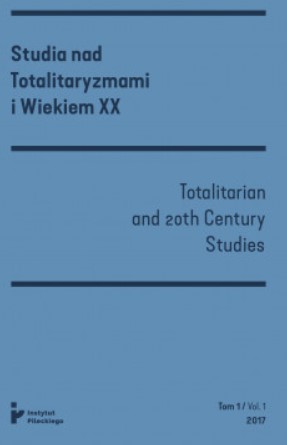A New Order for European Communication: Ideology or Technocratic Necessity? The European Postal and Telecommunications Union (1942–1945)
A New Order for European Communication: Ideology or Technocratic Necessity? The European Postal and Telecommunications Union (1942–1945)
Author(s): Sabrina Proschmann, Valentine AldebertSubject(s): Military history, Politics and communication, WW II and following years (1940 - 1949), Peace and Conflict Studies
Published by: Instytut Solidarności i Męstwa im. Witolda Pileckiego
Keywords: European communication network; European Postal and Telecommunications Union;
Summary/Abstract: Any new regime relies upon the building of networks that hold society together – communication being one of them. In the 1930s, the two pre-eminent communication networks were the post and telecommunications (PTT). However, we can observe a decline in bilateral and international PTT co-operation from 1935 onwards. With the destruction that followed the beginning of the war, the focus of the PTT administration was to re-establish the various systems. In the case of Germany and Italy – which wanted to create a ‘new European order’ – this meant that the technocrats involved in both countries were faced with establishing a system of communications that would connect Europe. In 1942, the European Postal and Telecommunications Union (EPTU) was founded. Although ‘Europe’ was limited to Germany, Italy and a majority of the countries occupied by the Axis powers, the EPTU signified a discontinuity in European PTT cooperation. A regional union of this kind had been discussed but not implemented in the 1920s. Thus, the question arises: Why in 1942? Was it a way for the Germans and Italians to dictate a new, ideologically charged order, or simply the expression of the administrative need to facilitate communication within Europe?
Journal: Studia nad Totalitaryzmami i Wiekiem XX
- Issue Year: 2021
- Issue No: 5
- Page Range: 312-324
- Page Count: 13
- Language: English

